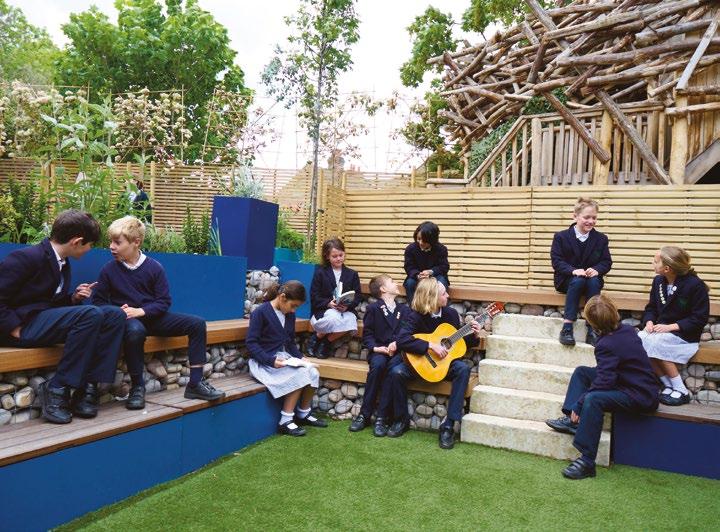











Worth £40 each
5 available
Come and play with True and Bartleby

Multi-level house complete with furniture for endless play possibilities
Compatible with all True and the Rainbow Kingdom figures, so True’s friends can join the fun Ages 3+


A 2022 global report shows that boys are increasingly becoming left behind in education. Furthermore, recent school entry baseline assessments show over one million boys are already under-achieving by the time they enter Reception. So what are the reasons behind this?

So it’s back to school already! Maybe you’ll have some time this month to take a look at our fabulous Education feature and explore how to support your child’s learning this year. Whatever stage your child is at you’ll find something of interest.

One key factor is that the male brain is wired to respond in external, rather than internal ways. This leaves boys at a disadvantage in the school environment where teaching focusses on the sedentary development of verbal skills, at the expense of active learning. A calm, controlled classroom is usually the teacher’s end goal but boys tend to learn better by doing rather than sitting.
We’ve also got great suggestions for board games for the family as the nights draw in and family-friendly museums to visit as the weather turns.
Both at home and at school, boys participate less in activities such as storytelling and nursery rhymes that support language and literacy development. Even playtime choices a ect their development; whilst girls often use make believe and role play activities which further develop their language skills, boys generally choose more physical outlets.
Look out for our fabulous giveaways too! Apply inside and you’ll also ensure you always receive this magazine and can take advantage of more content and goodies on offer.
The gender gap is further evidenced by the fact that boys make up around eighty per cent of pupils excluded from schools. They are often easily distracted and less likely to follow instructions.
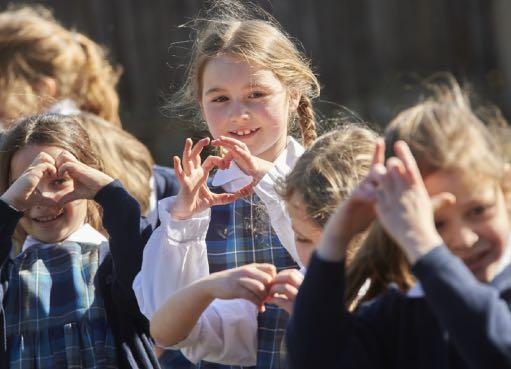
An excellent model which proves the theories about the di erent learning styles needed for successful boys’ education is the rapid emergence of Forest Schools. Here educators are seeing young boys excel when allowed to learn in the right environment, mixing physicality with academia. The benefits are limitless and encourage children of both sexes to learn in their own ways.

Competition winners from our May/June issue
Congratulations to all our winners. You can find a list HERE
While it may not be possible to find or have access to the perfect school environment, acknowledging that boys will mature later and have di erent learning needs and styles and giving them the encouragement and support they need, will help them progress through the school system. Encouragingly, once they are mature and by the time they finish school, the gender gap will have decreased with boys often outperforming their female counterparts at A-Level.

What is being done to address this? Sadly, our education system does not always get it right and only a minority of schools have been successful in developing specific strategies to raise boys’ attainment. These involve refining approaches to learning and teaching by challenging stereotypical perceptions and making necessary changes to the curriculum.
Catherine and Lisa are co-founders of Emparenting (www.emparenting.co.uk), supporting children, parents and families with insights, skills and tools to nurture the development and well-being of the next generation.
Co-educational secondary (ages 11-18)

Principal: A Faccinello MA (OXON) PGCE




We are proudly celebrating our Sixth Formers’ fantastic successes in gaining places at top universities including two at Cambridge University. From year 7, their Trinity education was grounded in our academic, knowledgerich curriculum.


Year 7 Open Days – Entry 2024

Open Mornings
Tuesday 3rd October 9am
Wednesday 4th October 9am
Tuesday 10th October 9am
Open Evening
Thursday 5th October 5pm
Sixth Form Open Evening – Entry 2024
Thursday 9th November 5pm
www.trinity.futureacademies.org 56 Brixton Hill, London, SW2 1QS
T: 020 3126 4993

 By Andrew Campbell
By Andrew Campbell
If you are looking ahead to your child’s first or next school, you have big decisions ahead. Do your homework now and the choices will become clearer, particularly when it comes to visiting your shortlist.
TOP TIP: It can take a couple of visits to really nail your school choices. So attend Open Days for key schools two years in advance of your child’s start date so you have time to come back to an Open Day the following year. Bear in mind that independent schools are generally non-selective at Reception, so get your name on waiting lists early. It can be good to visit the school and see it in action on a school day too, if you can.
Here are my tips for preparation and getting the most out of your visit.
1. Do your research Study the school’s website noting where the gaps are in your knowledge and which questions you

want to ask at the Open Day. Are there particular entry requirements? How long is the school day? How many students per class? Are there taster sessions for children before the start of term? Make a list of questions covering the things that are a priority for your family.
If your child is moving on to senior school, you may want to ask about things like mobile phone policy. If it’s a state school you are visiting, check your understanding of the catchment area, as they can change from year to year.
READ MORE
We asked our friends at Parrot Street Book Club for their suggestions.
A fun fantasy adventure inspired by African mythology. Ages 5+.

Highly illustrated, laugh-out-loud Viking adventure. Ages 5+.

A beautifully illustrated, mysterious maritime adventure. Ages 8+.

A thrilling wartime mystery with a classic feel for readers. Ages 8+.
Scooby Doo meets Escape Room in this entertaining adventure. Ages 8+.

 By Maria Motunrayo Adebisi
By Maria Motunrayo Adebisi
Epic new fantasy series. Ages 8+.
A heartwarming, inclusive adventure story. Ages 5+.
A life-affirming story packed with friendship, resilience and empathy. Ages 8+.

 By Judith Eagle
By Judith Eagle
A gripping mystery set in 1950s London. Ages 8+.





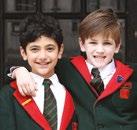
New open house dates available now, visit www.eatonhouseschools.com to book. If you would like to speak to our Head of Admissions, Miss Sam Feilding, about your child’s Eaton House journey, call 020 3917 5050 during school hours.

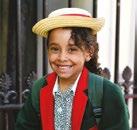
*Non-selective at 2+ and 4+ entry. Girls aged 2-11
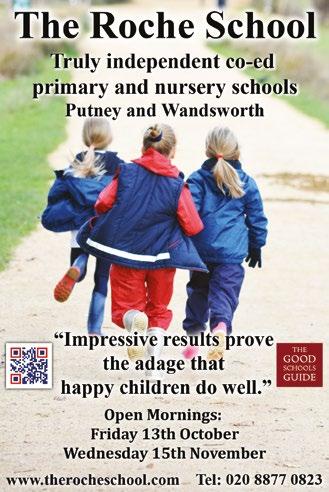














 By Usha Patel
By Usha Patel
Recently, the parent of a dyslexic student told me that, despite being offered speech-to-text assistive technology, he found writing and rewriting by hand helped organise his thoughts and process his ideas. So how could AI help assist with this?
READ MORE
Everyone is born with tendencies towards certain learning styles when developing literacy, language and motor skills. Recognising your child’s learning style can help you support their learning, particularly if they appear to be struggling in certain areas.

READ MORE
For further application information please visit www.wandsworth.gov.uk/admissions

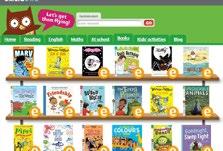
Is your child learning to read? Help them learn with these fun phonics activities.
Phonics Play
Phonics information, games and activities. £12 per year.
Mr T’s Phonics
YouTube Channel
Over 500 literacy resources recorded by a Year 1 teacher. FREE.
Reading Eggs
Online phonics activities and games for learning. £6.99 per month.

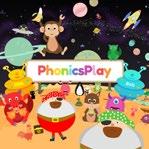
Oxford Owl Phonics

Storybooks
Over 150 eBooks to help your child put learning to practice. FREE.
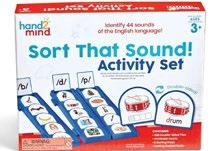
Identify and sort sounds and images, building phonemic awareness.
£25
Jolly Songs Book and Audio CD
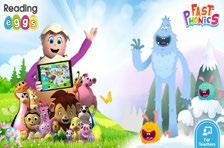
Children sing a song for each phonics sound. CD & explanatory book. £8.75.
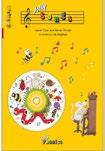
Mini-games help children recognise letters and practice blending sounds. FREE.

Created by reading experts. £5.03.
abc PocketPhonics
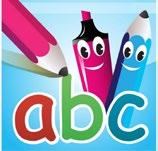
iPhone/iPad app
Fun, engaging combination of letter and sound pronunciation and writing practice. £6.99.
Fencing, beekeeping, Japanese club? With a Whitgift education you’re challenged academically and supported to discover interests you never knew you had. Offering independent day and boarding for boys aged 10 to 18 and set in 45 acres of parkland, we offer pathways for IB and A Levels.

To start your journey at our inspiring school, please visit our website.

“I

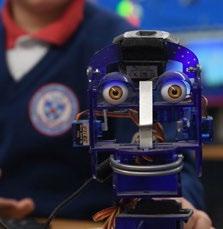















Super hero: let your child choose and act out imaginative adventures.
Circus: make tickets and provide hula hoops, face paint, animals etc.
Astronaut: create cardboard spaceships and helmets.
TV character: Paw Patrol, Postman Pat, Peppa Pig. Storybook character: a favourite or a classic eg Cinderella.
School teacher: teach the ABCs to stuffed toys or younger siblings.
Police: let kids enjoy the idea of being responsible. Factory: use old containers, tools, masking tape and set a task.
Taxi: two chairs, plate for steering wheel and a destination. Hospital: provide white coat and medical tools.
Grocery store: promote early maths skills, use pretend money and home produce.
Restaurant: set up pretend restaurant with menus, play food and tables.
Post Office: use envelopes, stamps and boxes; children can send and receive.
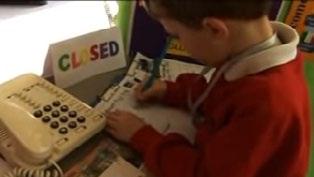
Dentist: settle patient nerves, provide chair, coat and pretend tools.
Cardboard city: create a pretend urban area using cardboard boxes.
Bug small world: use plastic bugs in a sensory tray.
Dinosaur land: use a tray with sand, pebbles, plastic trees and dinosaur toys
Animals at lake: make miniature beach with sand and animal figurines.

t

Venue : Raynes Park Sports Pavilion, SW20 0BH

Toddlers: 1-3yrs, Tues & Thurs 9.40am & 10.30am
Mini Gym: 3-4yrs, Mon, Tues, Wed & Thurs 1.20pm & 2.10pm, Wed 9.30 & 10.30am
Waiting list for Toddler Gym, spaces in Mini Gym, Winter term starts 4 Sept


A clearly structured programme, concentrating on the development of co-ordination, spatial awareness, mobility and gymnastic skills, providing a stimulating environment for increasing social skills and having lots of fun!
Class run with 2/3 coaches, twin/triplets welcome
New baby and toddler swim classes opening at the Aqua-Hub a lovely new warm water aqua sensory private pool in Putney.

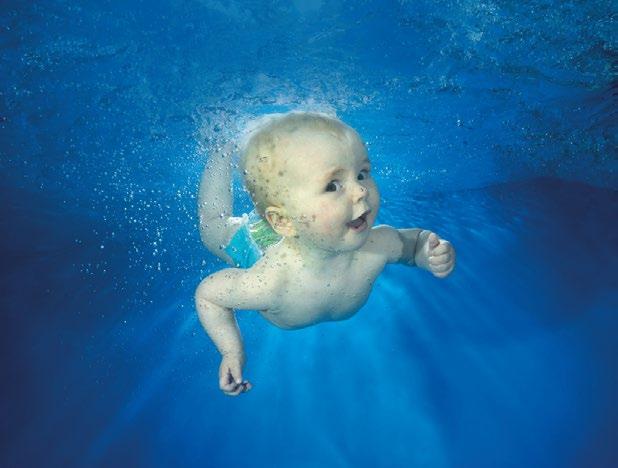
ww w littled ipp ers. co.u k 01273 22939 0
The club and all coaches are members of the British Gymnastics Association. Phone Gill Holland 01252 702295/07885103080




www.tjsgymclub.co.uk





















It’s the perfect time of year to invest in a new board game and these are not just brilliant fun, they also encourage aspects of children’s development.

Fosters self-regulation in young ones in a fun and silly way.
Ages 3-6. £21.15.
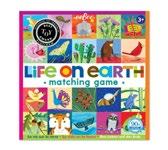
Great for encouraging focussed attention, Ages 3+. £6.
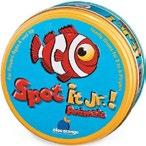
Children have to learn to suppress their first impulse.
Ages 4+. £14.39.
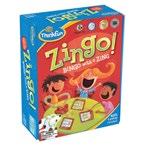
Develops language skills and self-regulation. Ages 4+. £18.50.
Practises turn-taking, planning, prioritising and boosts short term memory.
Ages 4-7. £29.35.
Fast paced game which tests memory and matching skills. Ages 3+. £8.30.
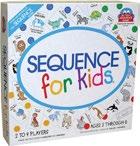
Promotes planning, decision making and fine motor skills.


Ages 4+. £16.49.
Award-winning game of strategic fish hunting. Ages 8+. £17.23.
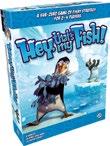
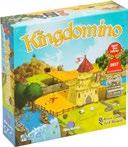
Improves spatial awareness, decision making and executive functioning.
Ages 8+. £22.35.
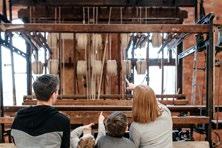
Head for one of these museums this October half term and you will definitely keep the kids engaged! And, many of them are FREE.

National Emergency Services Museum
Sheffield

Loads of interactive and hands-on activities.
London
Dedicated, designed and curated by children, a brand-new museum full of wonder. FREE

London Transport Museum
London
Climb aboard vintage buses/trains/taxis/tubes. FREE for under 17s.


Leeds City Museum

Leeds
Museum of Making
Birmingham
Steam engines, talking robots, spitfire gallery and planetarium.
Fascinating history of Leeds, signposted selfie points, all-round excellent facilities. FREE
Derby
Hands-on activities, regular family workshops. FREE.












We asked Ashley Lutz of Travel Counsellors for her top recommendations. Remember booking ahead can mean low deposits, discounts and even free child places.

The largest of the Greek islands’ really does have something for everyone. For younger kids, there are quiet beaches and secluded coves. For older ones, plenty of theme parks, aquariums and water sports.

Connected to the mainland by bridge and accessible directly by air, this island is lesser known and there’s no need for ferries. Krk’s natural beauty and numerous activities like scuba diving, go karting or simply just relaxing on one of the many lovely beaches and coves make it perfect for families.
A magical, ‘great outdoors’ destination for family holidays. Whether bathing in one of the many lakes or rivers, hiking up a mountain or cycling through unique landscapes, Switzerland is a paradise for summer adventures.

Explore beyond the Algarve on a fun road trip. Motorways tend to be quiet, making it easy to explore a variety of regions, each with its own unique character. Lots of fun routes to explore which take in long golden beaches, hilltop medieval villages, famous vineyards, the island’s natural beauty and delicious food.

We asked Ashley Lutz of Travel Counsellors for her top recommendations. Remember booking ahead can mean low deposits, discounts and even free child places.
Consider booking Abu Dhabi over Dubai for winter sun. It’s more relaxed, very well suited to families of all ages and has a less chaotic feel. Family-friendly activities include Ferrari World, waterparks, snorkelling, diving, kayaking and Warner Bros World.

Enjoy the pure bliss of jumping into lakes, kayaking and swimming in the sea. Rest your head in a tent for some wild camping or book into a comfy boutique hotel. From the unspoilt nature of Swedish Lapland to exploring Stockholm and its vast archipelago, Sweden is a dream for nature lovers and adventurous travellers.

For stunning scenery and beautiful beaches, gorgeous year-round sunshine and enough breeze to keep young children cool, Mauritius is perfect both for summer and Christmas holidays. Expect family-friendly hotels, restaurants and activities.


For a long haul adventure, this is a great option. My best advice: don’t just fly and flop. Travelling with children is easy here, with welcoming locals and great domestic travel options making exploring easy. From the hustle and bustle of Bangkok to the chilled out vibes of island life, there’s truly something for everyone.


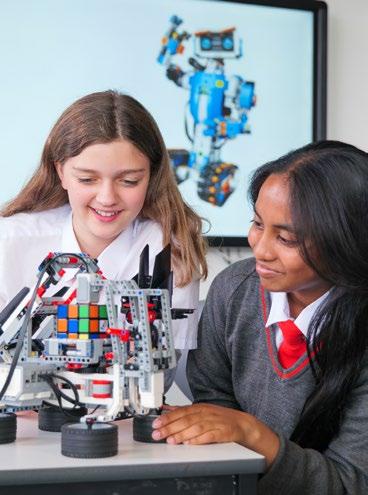

Thursday 5th October 2023 5:15pm - 7:15pm (Evening)
Saturday 14th October 2023
Bolingbroke Academy, Wakehurst Road, London, SW11 6BF


+44 (0)20 7924 8200 arkbolingbrokeacademy.org info@arkbolingbrokeacademy.org
Places available in Nursery (full and part time) and other classes.
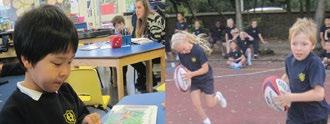
We are a Catholic Primary School that also welcomes families from other faiths and cultures. Our school aim is to develop the full potential of each child: spiritually, emotionally, intellectually, physically and socially.


We celebrate the uniqueness of each child Prospective parents are warmly invited to contact us directly to find out more and to join a tour.
Our Lady Queen of Heaven Primary School, Victoria Drive, SW19 6AD • 020 8788 7420 ourladyqueenofheaven.wandsworth.sch.uk ptaylor@olqh net

Authors of The Fussy Eater’s Guide to Exploring Food: A book for children explain how parents can support fussy eaters to expand their range of foods, using a sensory ‘food science’ based approach.
Fussy eating is common in children, often peaking around age 3.
The consequences include poor dietary variety, especially with fruit and vegetables, leading to concerns about nutrient intake and possible negative health outcomes. Evidence suggests that repeated exposure to new foods, using a sensory based approach, can help children expand their diet.
By becoming Food Scientists, children can explore new foods using a step by step, practical approach at a speed with which they are comfortable.
They are encouraged to explore foods, such as fruits and vegetables, in a fun way using all their senses by looking, touching, smelling, licking and listening to their sounds.
Evidence suggests that the more you expose children to new fruits and vegetables, the more likely they are in time to accept them. Initially suggest your child LOOK at the food they are exploring and describe its colour and shape. Using a magnifying glass enables them to look closely and compare the inside and outside.


Your child can then TOUCH and feel the food with their fingers to see if it smooth, bumpy, wet, dry, soft or hard.
Encourage them to explore further by looking inside, using cutters, peelers or juicers. They can use tongs or a napkin if they dislike getting their hands wet.
Authors of The Fussy Eater’s Guide to Exploring Food: A book for children explain how parents can support fussy eaters to expand their range of foods, using a sensory ‘food science’ based approach.
Encourage your child to progress to eating, from tolerating the food in their space to bringing it closer to their nose and mouth, to find out if it is a big SMELL that fills the room or smaller one, that stays close to the food.
Finally, children are encouraged to explore a small piece of food in their mouth, by taking a bite and to listen to the SOUND. Is it a squelchy or a louder crunchy sound?
Give children permission to spit the food out (into a tissue) if they dislike it.
Many children are reluctant to TASTE new foods. Suggest they take a small ‘snake taste’ by putting their tongue quickly on the food. How do the inside and outside compare? Salty, sugary, sour or bitter? They can take a bigger, longer lick, if they want.
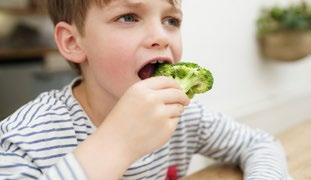
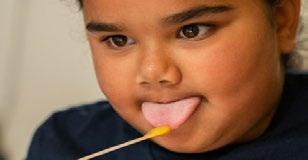

The Fussy Eater’s Guide to Exploring Food is for children and parents.

Its large childfriendly print and photographs show children how to become food scientists, exploring the sensory elements of different foods.
In small steps, the book supports children to become comfortable with new foods and eventually be able to eat them.


